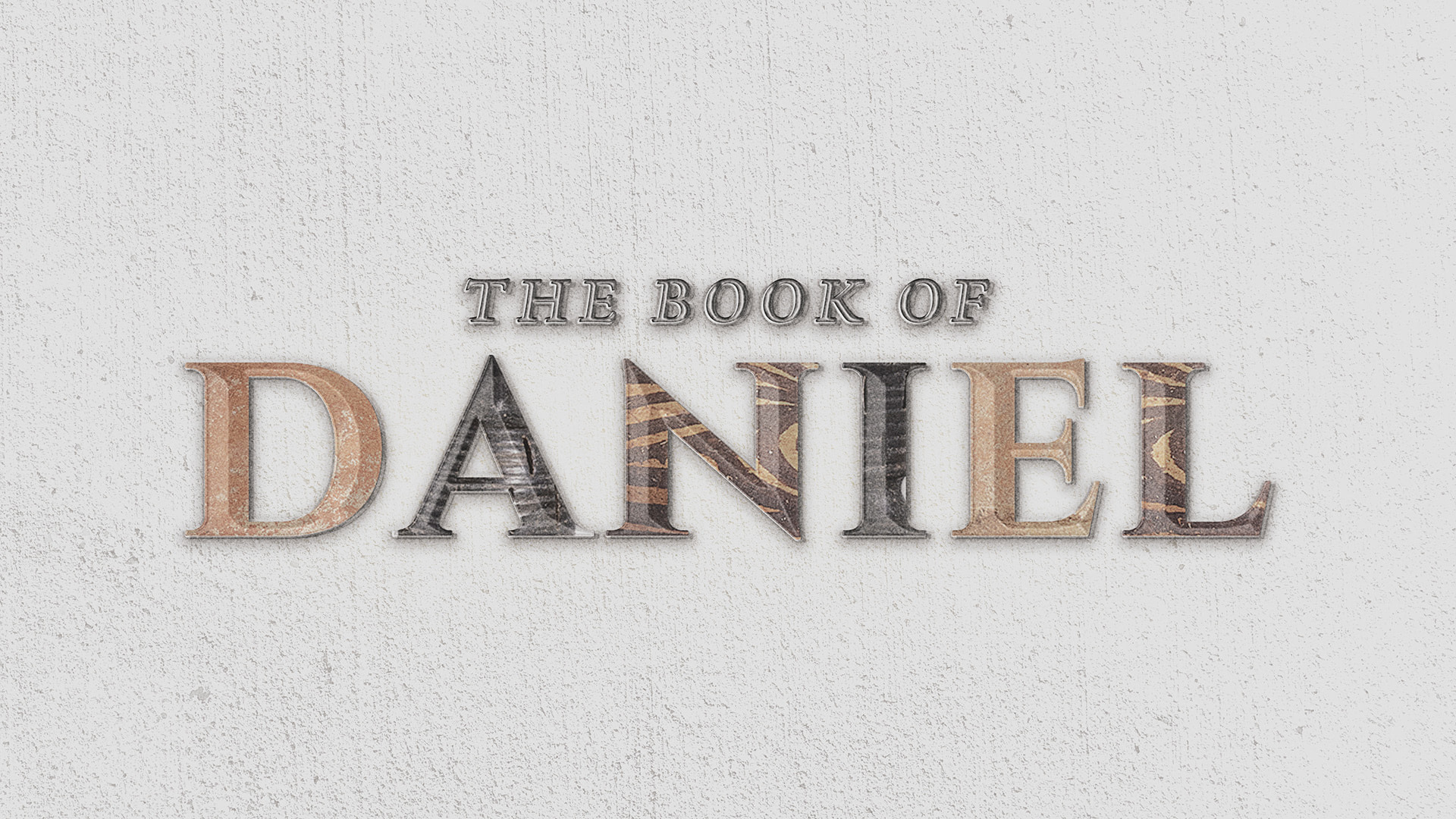We live in a world that has lost its way. Yet despite what it may look like, God is in control and working toward His ultimate good ends for humanity. This includes the work of His Church– people who’ve made the decision to follow Jesus. The question is, how can we remain faithful to God in a world that rejects him?
This is the central question of the book of Daniel. He too lived in a fast-changing and godless society. He faced fears about his future and concerns for his safety as the world around him seemed to be coming apart. Yet with humility and wisdom, he not only survived, but thrived. His life and his prophetic visions offer us a model for thriving as God’s servants in our world today.
Over the next ten weeks, we will be diving into this book together and exploring further what truths and practices we can glean from it as believers.
A little history
The book of Daniel takes place in the sixth century B.C. (500s), which was a very significant time for the Old Testament people of God. The warnings of covenant disobedience given centuries earlier in the Law of Moses were sadly realized here (Deuteronomy 28.49-68). The events that culminated in the fall of Jerusalem and the destruction of the temple were neither sudden nor unannounced. The prophet Jeremiah, a contemporary of Daniel, had prophesied these tragic events years in advance.
The Bible records three separate deportations of Jews to Babylon (605 B.C, 597 B.C., and 586 B.C). The first included Daniel and his friends (2 Kings 20.18; Daniel 1.1-7), the second included the prophet Ezekiel, and the final one included the destruction of the city of Jerusalem and its temple (Jeremiah 25.1-11; 2 Kings 24-25; 2 Chronicles 36.14-21).
There is no doubt that the destruction of Jerusalem in 586 B.C.E. (Before the Common Era) is the defining historical event in the Old Testament. That destruction and the dislocation that followed amounted to a huge upheaval of every dimension of Israel’s life, including displacement of theological certainty. —Walter Breuggemann
This is the historical setting for the long life and ministry of Daniel that begins in the opening verses of the book’s first chapter (Daniel 1.1-7).
A couple important words
Daniel is not an easy book to read and understand (even more difficult in the original languages—roughly half is in Hebrew and half in Aramaic). A full understanding of two key terms—namely “Babylon” and “Exile”—can provide us some help as we read.
Babylon is mentioned many places in the Bible, most of them in a negative way. In Daniel’s day it was the Babylonians who besieged the city, raided the temple, and carried off the best of the people and resources. Yet as Daniel’s prophecies reveal, historic Babylon was conquered by another world power before the time of Jesus. Yet near the very end of the Bible, just before Jesus’ return, the fall of Babylon is recorded yet again.
“Fallen! Fallen is ‘Babylon the Great!’ She has become a dwelling for demons and a haunt for every impure spirit, a haunt for every unclean bird, a haunt for every unclean and detestable animal. For all the nations have drunk the maddening wine of her adulteries. The kings of the earth committed adultery with her, and the merchants of the earth grew rich from her excessive luxuries.” Revelation 18.2-3
By the end of the writing of the New Testament, “Babylon” had become a term, many believe, for the Roman Empire. More broadly, it became associated with the world system that is the focus of the great judgment at the end of history.
However, while the other major prophets spoke of Babylon in solely negative terms, Daniel did not. Instead, Daniel demonstrates another side of God. He intends to do more than just judge an ungodly nation. He offers here a saving word to those under His wrath. And for this He will need His people dwelling there. The same is true for us– and this is the major reason for a study of this Bible book today.
Christians are people living in exile from their true home, sent into a dark world to point people to the true light.
The term “exile”, or “exiles”, is also a rich and widely used term in Bible—both in the Old Testament and in the New Testament. In the Bible, exiles are people driven out of a certain place by God. These are generally geographical places associated with the blessings of God (e.g., the garden of Eden; the temple in Jerusalem). From a larger perspective, however, “exile” can be seen as a chronic spiritual condition that the partial return of the people of God to the land of Israel (the books of Ezra and Nehemiah) did not remedy.
Christians are people living in exile from their true home, sent into a dark world to point people to the true light.
Dear friends, I urge you, as foreigners and exiles, to abstain from sinful desires, which wage war against your soul. Live such good lives among the pagans that, though they accuse you of doing wrong, they may see your good deeds and glorify God on the day He visits us. 1 Peter 2.11-12
The main ideas and outline
The overarching theme of the book of Daniel is the Providence of God among His people in the larger scope of human history. Though there is a dramatic contrast of genre and style in the two halves of the book (the first six chapters are history and biography; the last six are prophecy) the overall message of the book is consistent. Despite appearances, God is in control of your life and the world you live in.
The opening chapters tell the story of Daniel—an exceptional person with exceptional friends. But to read the book as an adventure story or morality tale would be to miss its main point: to reveal the God of the Bible to its readers. And this God, above all else, is sovereign. He is over all things, in all things, and moving all things in the direction He has purposed them to go. And He is inviting us to be a part of this continued movement today.
I encourage you to read the book several times through over the next ten weeks. Pray and ask God, with the help of the Holy Spirit, to reveal to you how Daniel and his friends can be a model for you to live out your faith more thoroughly today.
Each week we will post sermon guides and summary videos (“Between Two Sermons”) to help you or your small group go deeper in this study. You’ll be able to find these resources at browncroft.org/sermons starting next week.
I look forward to taking this journey with you!
Pastor Rob





